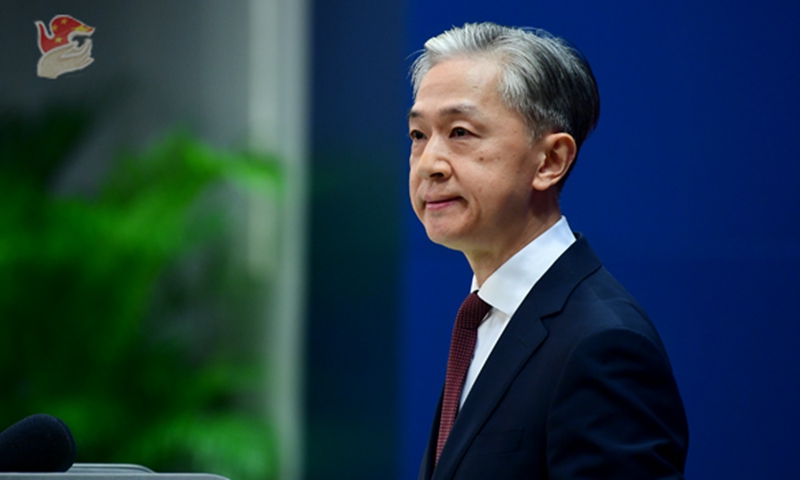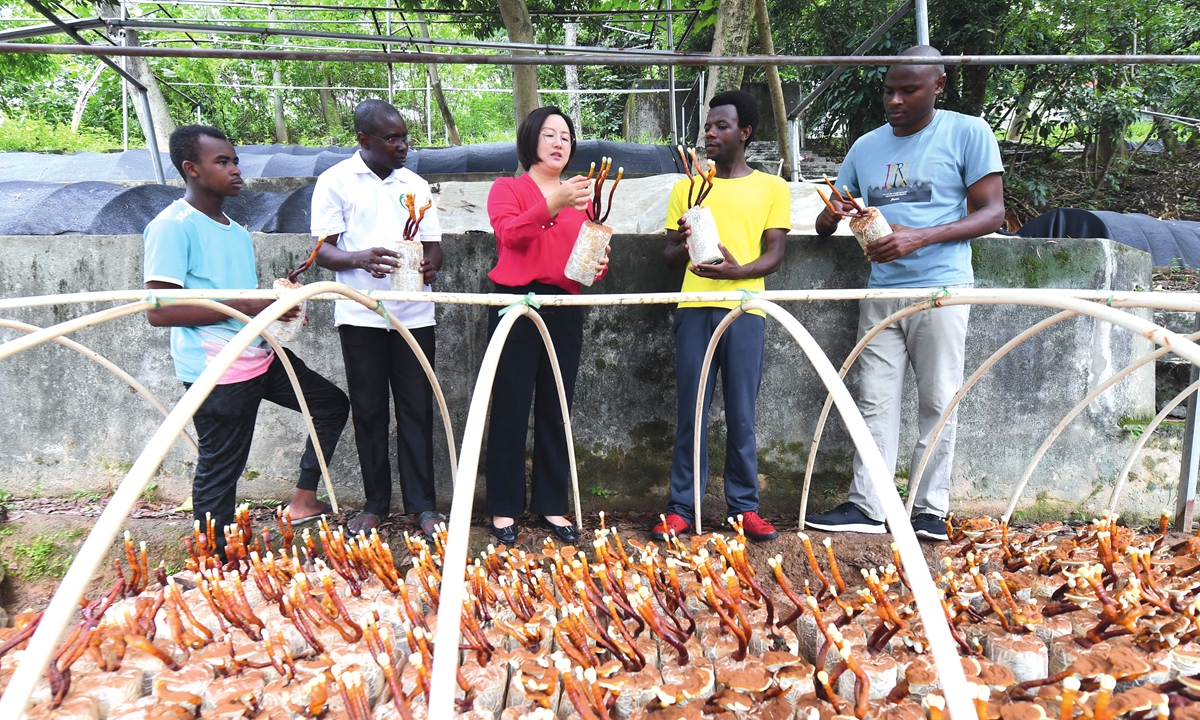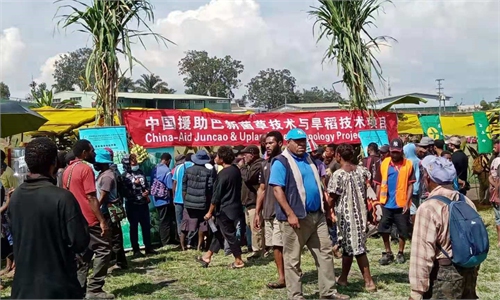China advances global poverty reduction by sharing agricultural sci-tech with developing countries: FM

Foreign Ministry Spokesperson Wang Wenbin Photo: Chinese Foreign Ministry
China has actively promoted cooperation in agricultural science and technology innovation in recent years, making an important contribution to advancing global poverty reduction and sustainable agricultural development, the Chinese Foreign Ministry said.
The remarks came after a delegate to the 20th National Congress of the Communist Party of China (CPC) outlined how Juncao technology was shared with the world.
China's Juncao technology has been introduced to 106 countries and regions, helping address poverty in many places including South Pacific nations, Africa, and Latin America, Lin Zhanxi, a delegate to the 20th National Congress of the CPC and inventor of Juncao technology, said on October 16.
Juncao, which literally means "mushroom" and "grass," can be used, as its name suggests, to grow edible mushrooms, as livestock feed or as a green barrier to combat desertification.
Papua New Guinea (PNG) was the first country to receive China's Juncao technology, Lin said, noting that his team made every effort to localize and simplify the technology for breeding fungi with herbaceous plants so that rural residents in PNG could easily master it.
Currently, Juncao technology has helped alleviate poverty in South Pacific nations, Africa, and Latin America and changed the destiny of those people, Lin said.

African students learn how to plant fungi at the Fujian Agriculture and Forestry University on August 12, 2021. Photo: Xinhua
The Chinese Foreign Ministry said on Friday that China has actively promoted cooperation in agricultural science and technology innovation in recent years, making important contributions to safeguarding world food arrangements and advancing global poverty reduction and sustainable agricultural development.
One such example is the Hainan-based Chinese Academy of Tropical Agricultural Sciences, China's only state-level research institute for tropical agriculture, which helped raise the yield of cassava, a staple crop in the Republic of Congo, to 51 tons per hectare, 5.6 times the yield of local varieties, according to Wang Wenbin, spokesperson of the Chinese Foreign Ministry.
The cotton seeds, named China 1 and China 2, which were developed by the modern cotton research center at the China Aid Agricultural Technology Demonstration Center, helped Sudan improve its cotton farming, and the planting area has accounted for more than 90 percent of the total cotton planting area in Sudan for many years, Wang added.
The hybrid rice poverty reduction demonstration village project built by the Chinese side in Burundi helped residents in four local villages eliminate poverty, and led to the establishment of 22 similar demonstration villages in Burundi, benefiting 2,800 households and 22,500 people, with an average annual income increase of $1,340, Wang added.
In June this year, a groundbreaking ceremony was held for an agricultural science and technology complex in Dominica supported by China, which will also help bring agricultural modernization there to a new level, Wang said.
Looking to the future, China will help more developing countries improve food output and sustainable development through agricultural science and technology cooperation, Wang said.
Global Times

